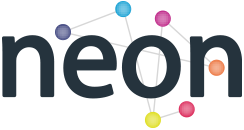Addressing Differential Outcomes for Ethnically Diverse Learners Meeting
NEON Working Groups
Date
12/07/2022
Time
2:00 pm - 4:00 pm
Please register to receive the log in details and to be able to access the meeting.
This working group is organised by the University of Kingston.
The meeting will be held online on Tuesday 12th of July from 2pm to 4pm.
This working group serves to provide a space for addressing the challenges of establishing better outcomes for ethnically diverse learners in Higher Education, and will be exploring innovative approaches to developing good practice in this area by way of practical discussions, research/case study analysis, and peer support.
DRAFT AGENDA
2.00-2.10 Welcome and Introductions (Karen Lipsedge, Kingston University, Chair)
2.10-3pm: Nadia Bertolino and Rima Hussein (Northumbria University Newcastle): ‘Race and Space’ Reading Group: activism, hope and subversion in HE
Nadia is an architectural theorist, researcher and educator concerned with ethical practices in response to socio-spatial inequalities and environmental emergency. She is a Senior Lecturer in Architectural Theory at Northumbria University. In delivering teaching and supporting learning, Nadia is committed to educational practices that are inclusive, progressive and socially and environmentally just; consistently with this personal trajectory, she has more recently engaged with feminist pedagogies and issues around decolonising architectural education.
Rima is a Senior Lecturer in Organisational Behaviour and Human Resource Management at Newcastle Business School. She is the Faculty Director of Equality, Diversity and Inclusion for the Faculty of Business and Law and an Athena SWAN reviewer. Her recent research focuses on gender equality in academic career pathways, inclusivity in the publishing industry and the gendered experiences of domestic abuse survivors in the English family law court. She was a stream convener for the Gender, Work and Organisation International Conference (2021).
Workshop Summary:
The Race and Space Reading Group project draws on the transformative power of shared reading and discussion to enhance ‘cultural competency’ and challenge racialised social constructs in HE. In particular, we believe that a spatial discourse can provide a particularly useful lens and language for locating and understanding persistent racial processes and eventually challenging them. ‘Space’ is also a tangible expression of power, that establishes or restates social and economic inequalities, producing racialised material geographies. Through a curated selection of novels, poems and academic writings, ‘Race and Space’ became a safe place for deep listening, a common ground for practising refusal and act collaboratively. The session will describe the project; how it was designed and implemented; how it was received by our attendees; its flexible format, the findings, their implications and our plans to develop it further.
Are you interested in developing a network to work on these sorts of projects across diverse institutions? Nadia and Rima would like to hear from anyone who would like discuss collaboration opportunities further with them (nadia.bertolino@northumbria.ac.uk, rima.hussein@northumbria@ac.uk)
3.00-3.10pm Break
3.10-3.30 Breakout groups
The breakout session provides colleagues with the opportunity to come together to discuss the project and how they could incorporate and develop the strategies provided at their institution. In your discussions, please consider the following topics:
- Based on your experience, how might shared reading be potentially used to enhance cultural competence and address differential outcomes for ethnically diverse learners? How might it work and what would be needed? Here you may want to refer to similar initiatives taking place at your own institution.
- How can a reading group become a space of institutional activism?
- Discuss and share examples of other forms of collaborative extra-curricular initiatives that enhance undergraduate students’ participation, focusing in particular on the experiences of ethnically diverse learners
3.30-3.55pm: Feedback and Q&A
3.55-4pm: AOB and next meeting
